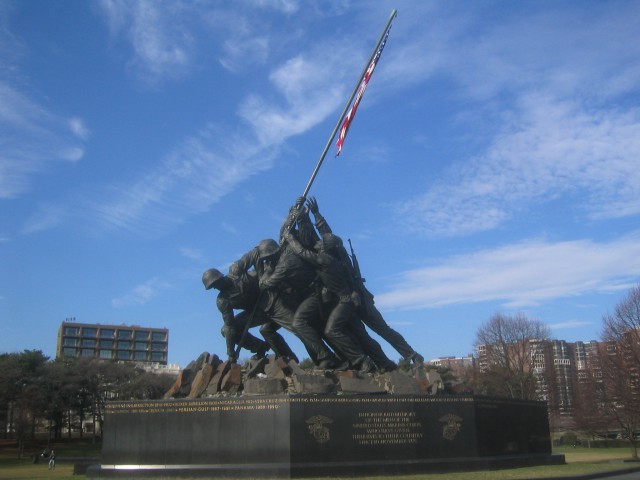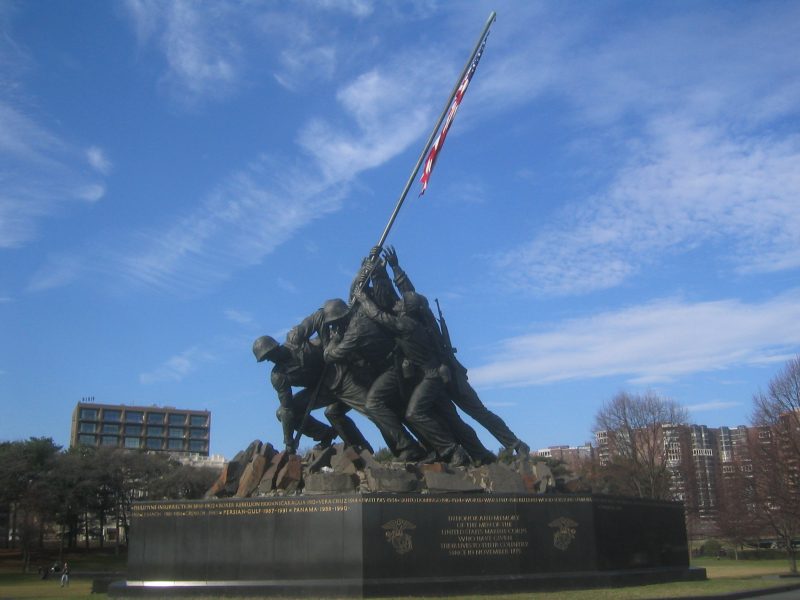
In February, veterans of the World War Two Pacific battle of Iwo Jima gathered in Washington, D.C. to commemorate the battle’s 70th anniversary. Many of the veterans are now in their 80s and 90s, attending the event from all over the United States in order to remember the sacrifice of their fellow soldiers.
The battle of Iwo Jima began with 30,000 US troops landing on the island’s beaches on February 19th 1945. Among them was US Marine Captain Larry Snowden with his squadron of 230 men.
After the first wave of troops an additional 40,000 men were sent to the island to fight the 20,000 Japanese soldiers based there. The Japanese did not meet the Americans head on, but instead hid all around the island in tunnels and caves in order to maintain an element of surprise.
US troops did not get far on their first day, moving only fifty yards inland; with both sides suffering massive losses. It took the US troops five weeks to take the entire island; it was one of the most violent and bloodiest battles of the war, the Stars and Stripes reports.
Now 93, Captain Snowden recalls how only 99 of his men survived the battle and made it off the island. Captain Snowden spoke at the Washington memorial and recounted some of his memories and experiences of that time.
The battle was over by the end of March but around 7,000 US troops had lost their lives, while around 19,000 were injured. Around 19,000 Japanese soldiers were killed, as they preferred to die rather than surrender.
The battle became infamous due to a photograph taken by photographer Joe Rosenthal, who captured the moment when five soldiers and a Navy corpsman made it to the top of Mount Suribachi and raised the American flag there.
The victory for American troops on Iwo Jima was a huge morale boost for the Allied war effort. The battle, fought mainly by US Marines, has become central to Marine history and an inspiration for the post-World War Two generations.
